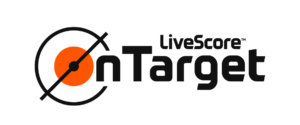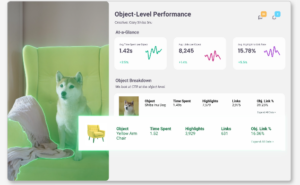by Dave Colgate, Head of Enterprise SEO, Vertical Leap
The rise of ChatGPT has been nothing short of meteoric. The marketing industry has seemingly been turned on its head at the prospect of ChatGPT augmenting or potentially replacing existing roles. This fearmongering has led to concerns around whether it will put search engines out of work. But are there any legs in these doomsdayer claims?
Search engines will come and go but people’s need for information will endure. Digital marketers should therefore look at ChatGPT not as an enemy but as a ‘super assistant’.
ChatGPT: A specialist’s best friend
ChatGPT should be viewed by marketers as a tool to help professionals do their job, not as a competitor. For starters, ChatGPT can be used to improve efficiency. AI tech can perform a lot of repeatable tasks, such as backlink analysis and key word research, in a shorter space of time, at a higher level of accuracy. That’s just one example.
With AI expediting some of the process, specialists can better apply their expertise to focus on decision making and prioritisation. ROI and commercial value can be achieved more easily by digital marketers as a result, as they can utilise the time saved to work on brand strategy and wider business needs. In this scenario automation is not replacing specialists, it’s simply enriching their time.
The intelligence of AI can also offer digital marketers the chance to disrupt target audiences. ChatGPT can access an array of data sets not readily available to them. This can then provide fresh perspectives on activity and aid professionals in defining a comprehensive SEO strategy. By combining AI with a human touch, marketers can ensure all projects are well informed and set up to succeed.
The Drawbacks of ChatGPT
For all the benefits of ChatGPT, it’s also important for marketers to understand its limitations.
One easy mistake marketers can make is to use the application for any current or trending news, as its database only goes up to September 2021. If you ask it about anything related to the last 18 months, it will not give you a useful response. This is a critical issue for brands, dealing with trends and insights relevant to the here and now. Due to ChatGPT’s data limitations, it needs to be used in conjunction with a specialist to ensure a more thorough level of analysis.
ChatGPT also needs to be spoken to correctly for the user to garner valuable insight from it. However, many marketers do not approach the application in the right way and are thus unable to make full use of it. This lends credence to the idea that ChatGPT should be viewed as a tool, as without the right understanding of the brand’s challenges from an expert, combined with a knowledge of how to use the AI, it’s hard to capitalise on it fully.
The next generation of AI Chatbots
With Google recently announcing the introduction of its own AI software Bard, the Chatbot arms race is heating up. Consequently, the big players in this field are constantly updating their software to be smarter and more innovative. ChatGPT has recently introduced GPT4, which is set to offer improved accuracy, problem-solving abilities, and reasoning skills. Perhaps the most interesting development is its ability to use images as prompts. This is indicative of a wider cultural change with how we consume media. We have all seen the increasing prominence of video and audio content, spearheaded most recently by TikTok.
This shift is of great interest to digital marketers who need to stay at the forefront of how we consume information. It’s also their responsibility to help brands prepare for these changes. To stay ahead of the curve, it’s no longer enough for brands to optimise themselves on Google solely. Digital marketers should have a good understanding of these other platforms to ensure they can position their brands on them effectively. It doesn’t require a massive investment of time or resources, but it can give you the building blocks for future developments.
The developments in AI are a symptom of this wider cultural shift and by having a clear understanding of how this all works, digital marketers can help brands prepare for the future and get the most out of their SEO.
The future is bright for AI
The SEO industry should be excited by tools like Chat GPT. But it’s exactly that – a tool, and by using it in conjunction with a specialist you can achieve another level of analysis. By freeing up time for SEO experts to focus on strategy and decision-making, meaning a greater ROI.
The doomsayers can rest easy knowing their job is safe. The SEO industry will look into what will happen next for AI with bated breath, and brands must begin to understand that this is part of a wider transition for how society consumes information.









